Endocrinology and Hormones
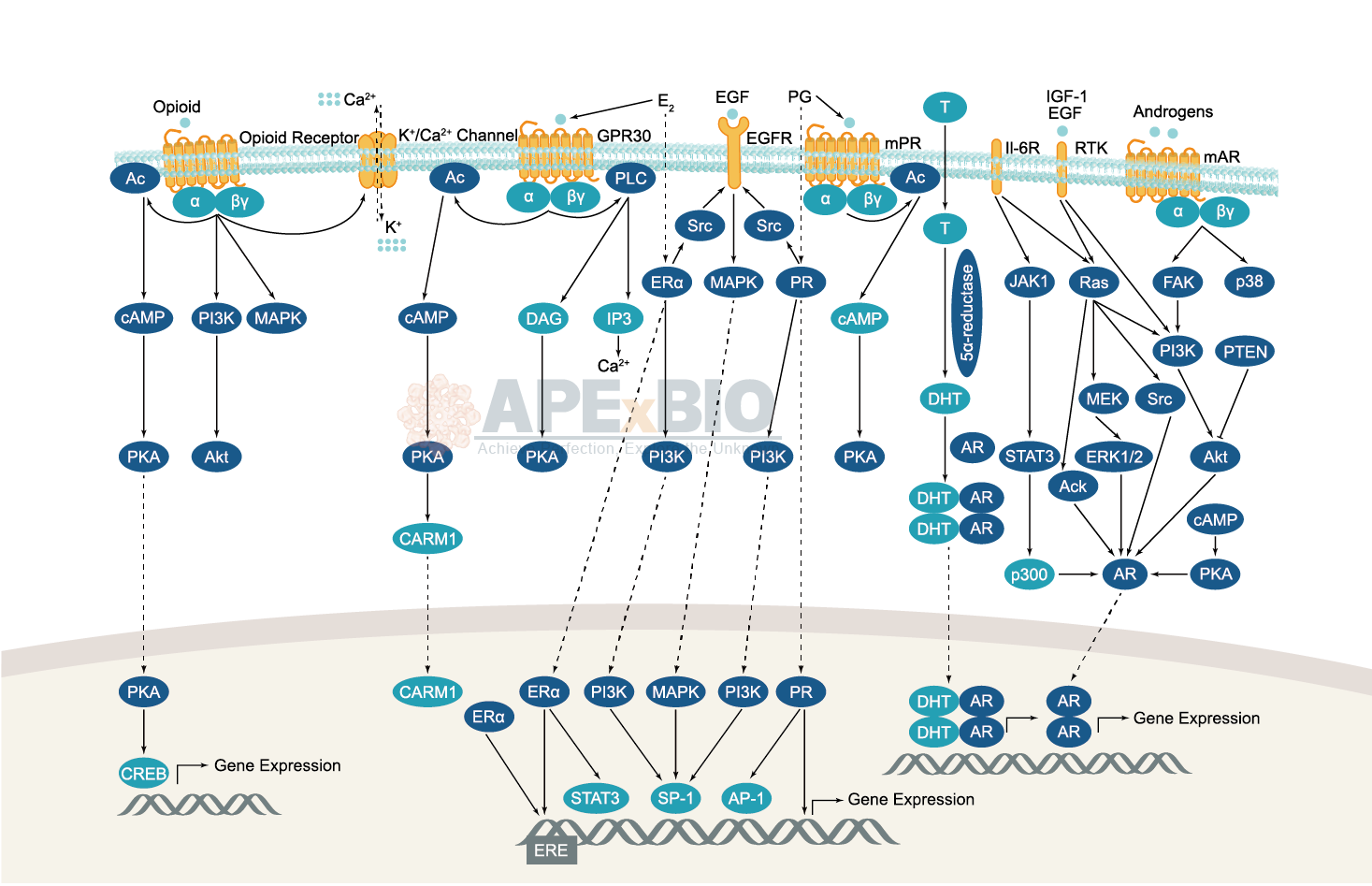
There are three types of hormones based on their chemical composition: Amines (e.g. dopamine, adrenalin and noradrenalin); Steroids (e.g. estrogen, testosterone and glucocorticoids); Peptides (e.g. the peptide hormones insulin, ghrelin and vasopressin). Peptide hormones produced by secretory nervous tissue are known as neuropeptides. For example, thyroid hormone plays important parts in development, homeostasis and metabolism, while cortisol is essential for growth, nutrient supply and immune function. Moreover, the regulation of blood glucose involves several pancreatic peptide insulin and its counter regulatory hormone, glucagon, as well as cortisol, growth hormone and epinephrine.
Dysregulations in endocrine system are implicated in diseases such as Acromegaly, Cushing Syndrome, Diabetes, Dwarfism, Graves Disease, Hermaphroditism, Delayed and Precocious Puberty and Thyroid Diseases.
-
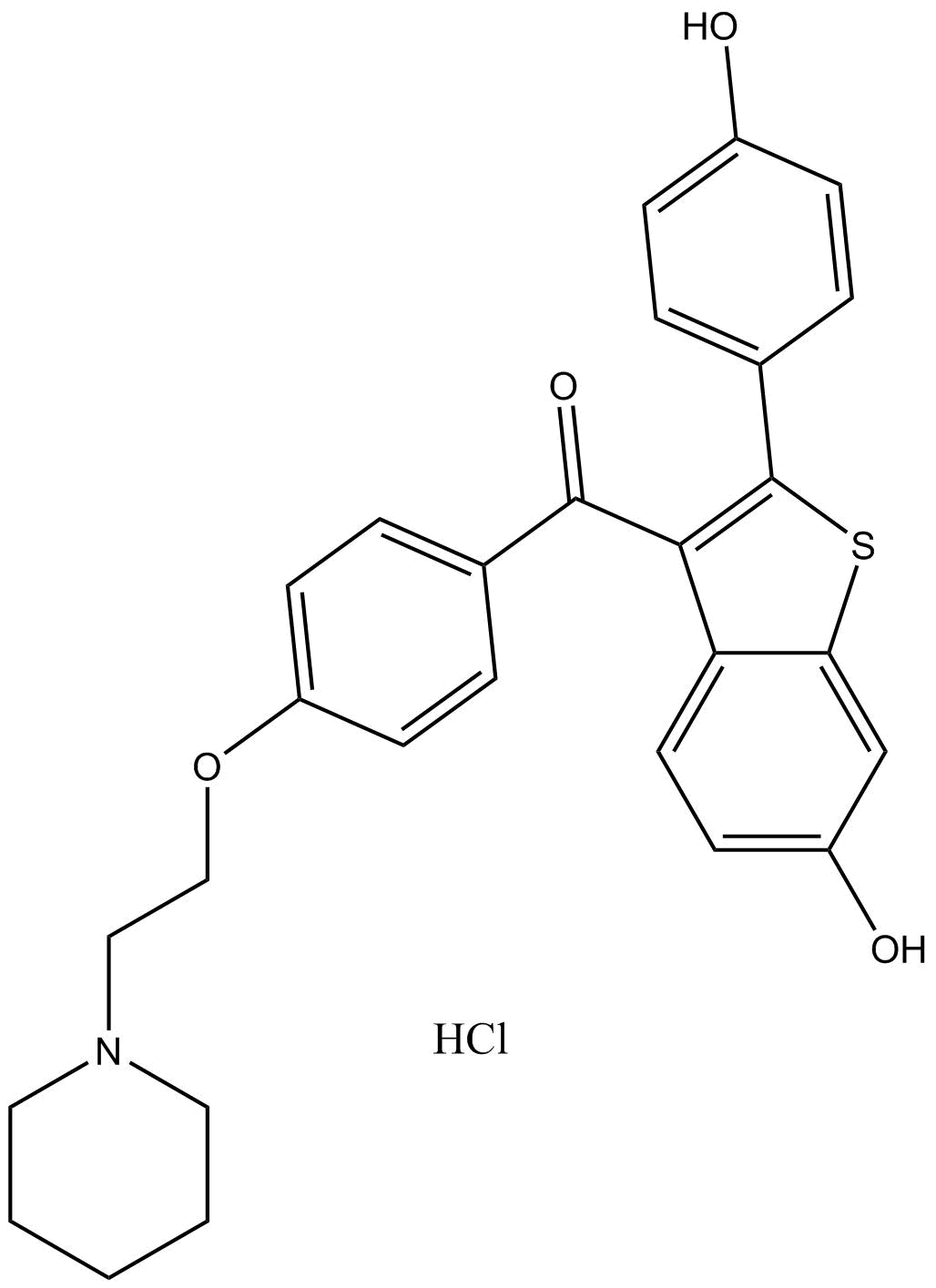 B1515 Raloxifene HClTarget: Estrogen and Related ReceptorsSummary: Estrogen receptor (ER)
B1515 Raloxifene HClTarget: Estrogen and Related ReceptorsSummary: Estrogen receptor (ER) -
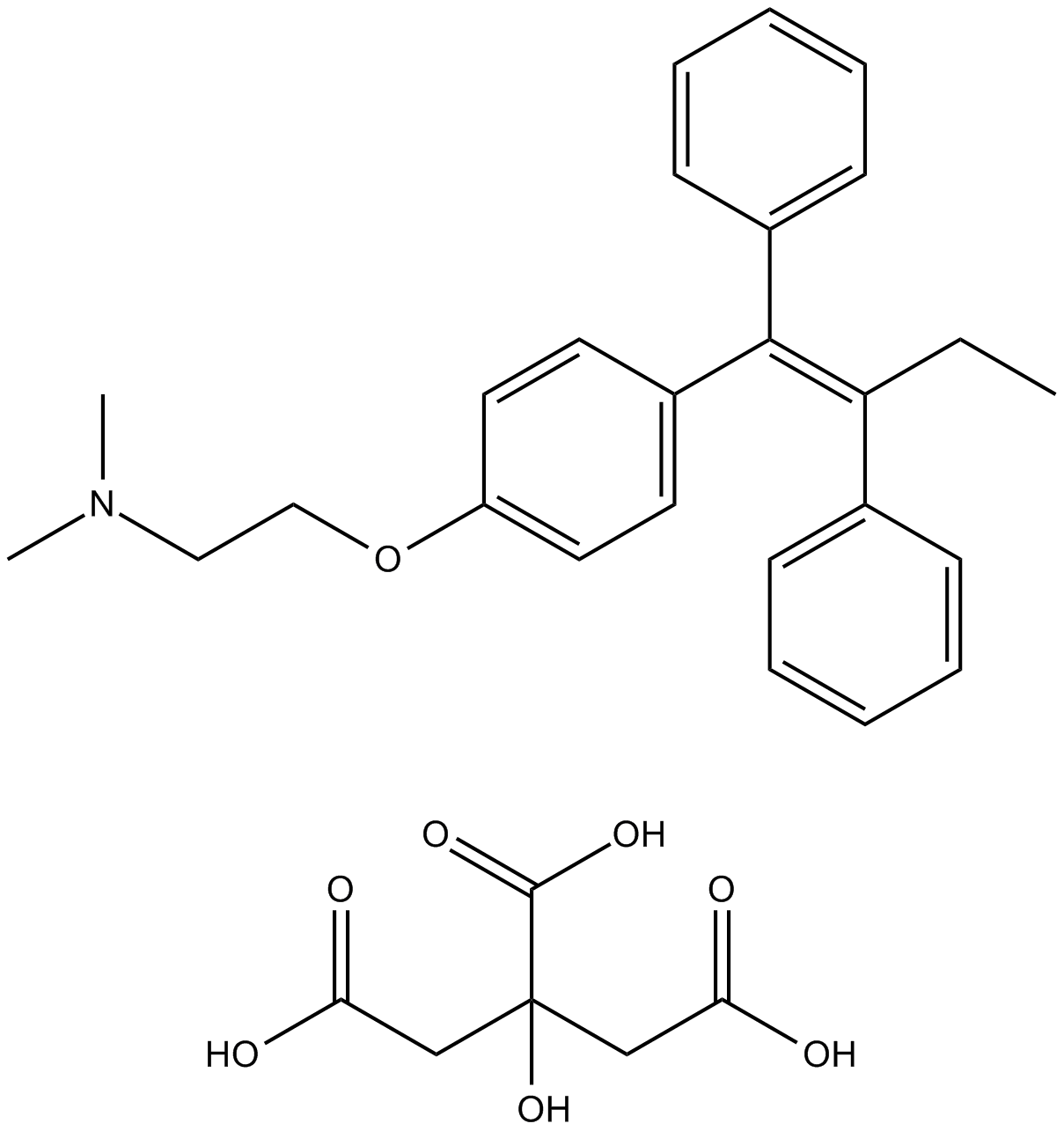 B1394 Tamoxifen CitrateTarget: Estrogen and Related ReceptorsSummary: Antiestrogen drug
B1394 Tamoxifen CitrateTarget: Estrogen and Related ReceptorsSummary: Antiestrogen drug -
 B5455 G-14 CitationTarget: GPR30Summary: GPR30 agonist, potent and selective
B5455 G-14 CitationTarget: GPR30Summary: GPR30 agonist, potent and selective -
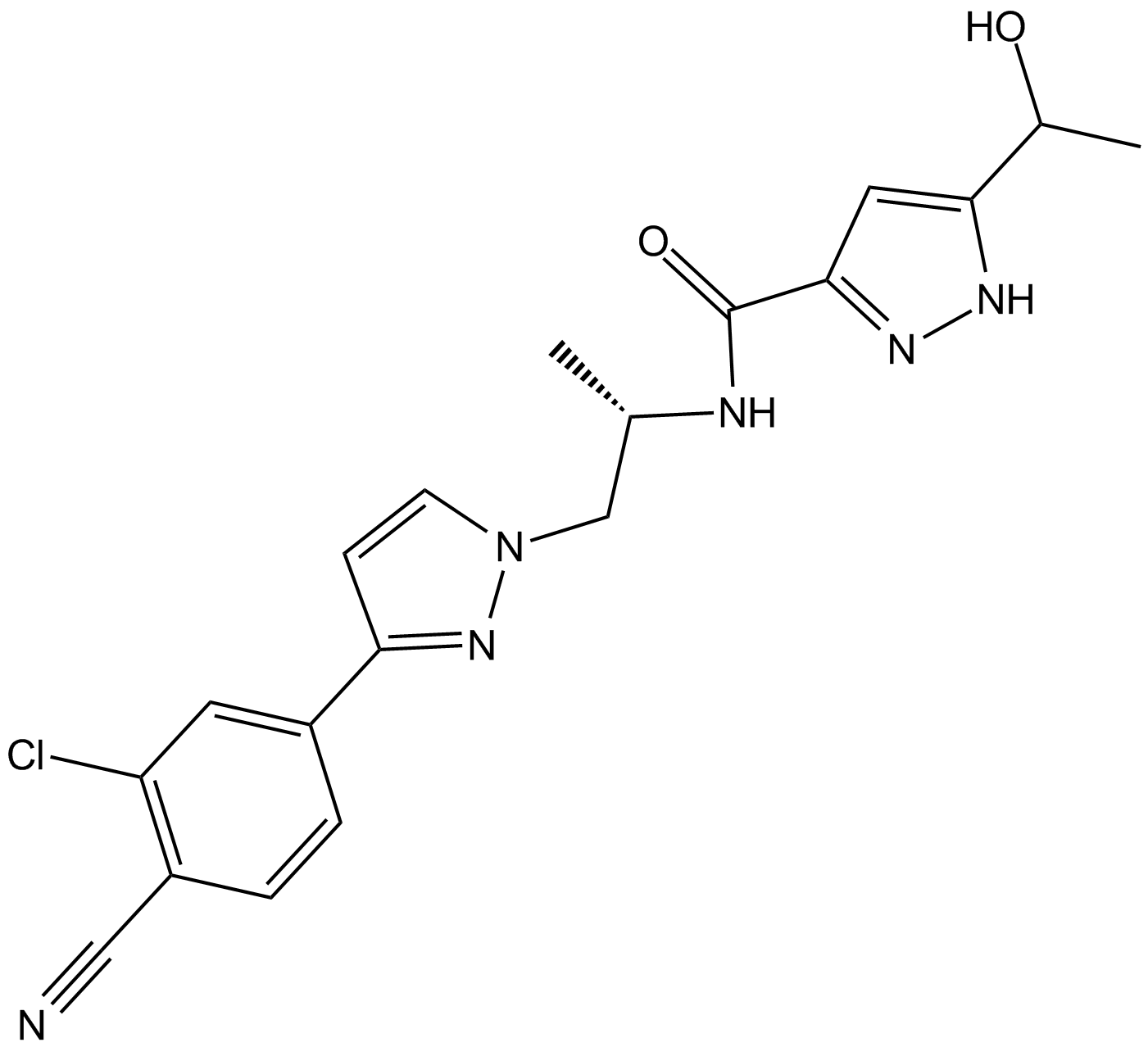 A8452 ODM-201Target: Androgen ReceptorsSummary: new-generation androgen receptor inhibitor
A8452 ODM-201Target: Androgen ReceptorsSummary: new-generation androgen receptor inhibitor -
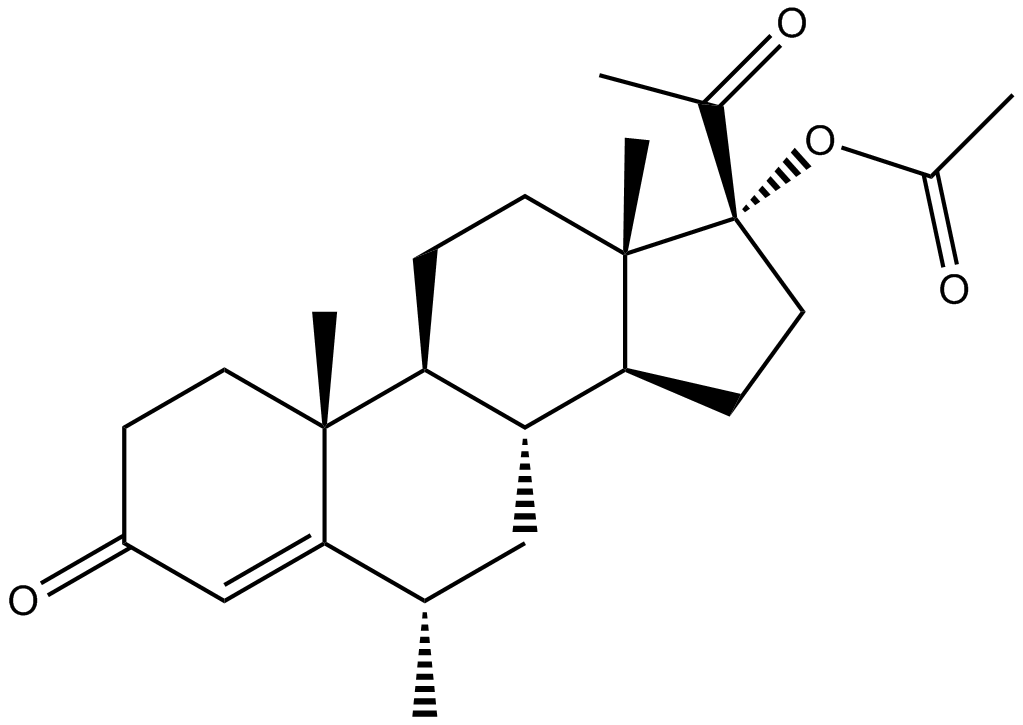 B1510 Medroxyprogesterone acetateTarget: Progesterone ReceptorsSummary: Steroidal progestin
B1510 Medroxyprogesterone acetateTarget: Progesterone ReceptorsSummary: Steroidal progestin -
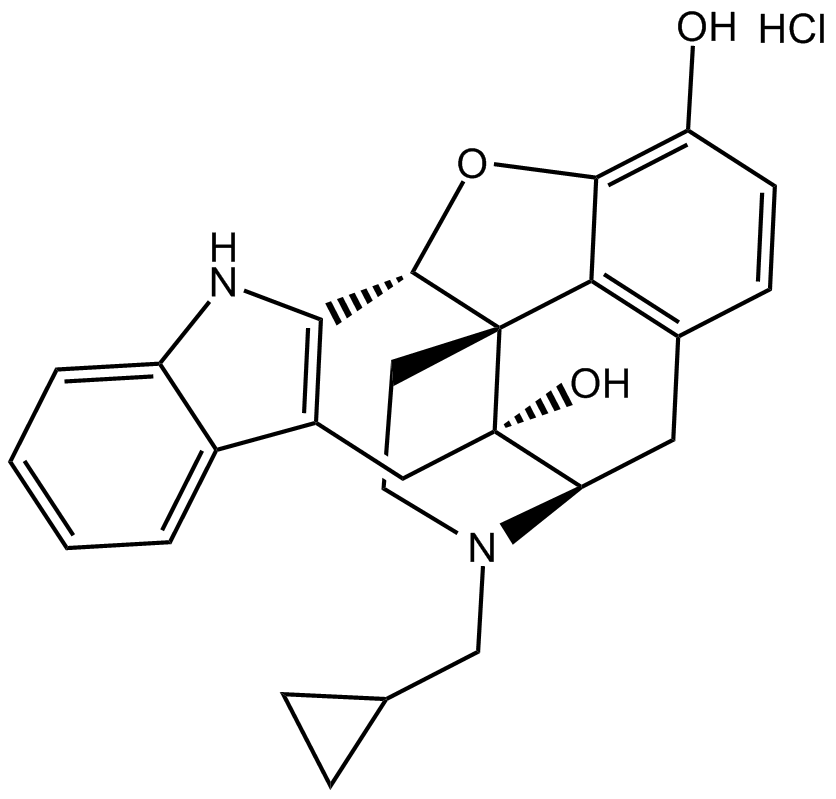 B6429 Naltrindole hydrochlorideSummary: δ opioid antagonist
B6429 Naltrindole hydrochlorideSummary: δ opioid antagonist -
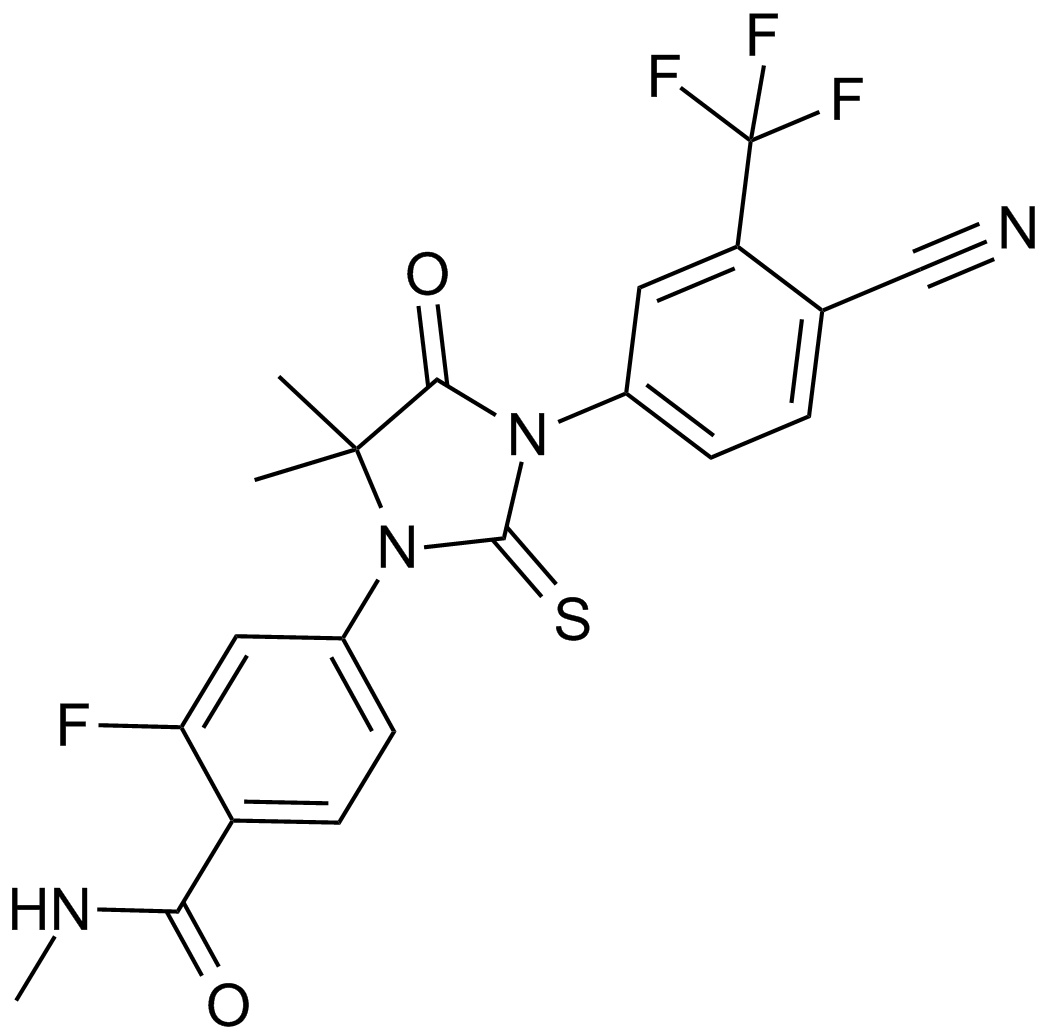 A3003 MDV3100 (Enzalutamide)12 CitationTarget: Androgen ReceptorsSummary: Androgen receptor antagonist
A3003 MDV3100 (Enzalutamide)12 CitationTarget: Androgen ReceptorsSummary: Androgen receptor antagonist -
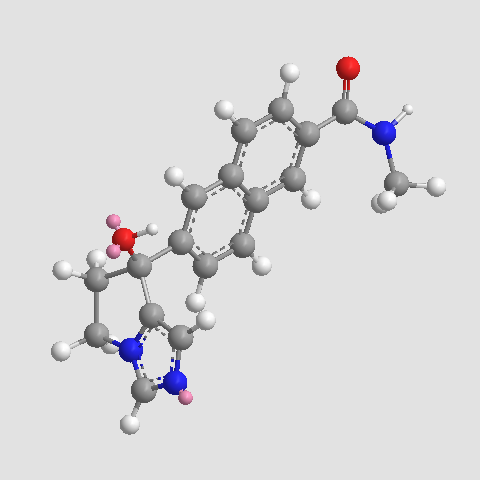 A4326 TAK-700 (Orteronel)2 CitationTarget: human lyaseSummary: Human 17,20-lyase inhibitor
A4326 TAK-700 (Orteronel)2 CitationTarget: human lyaseSummary: Human 17,20-lyase inhibitor

